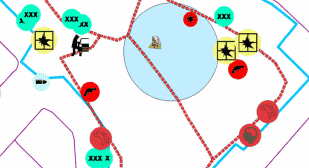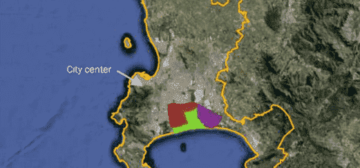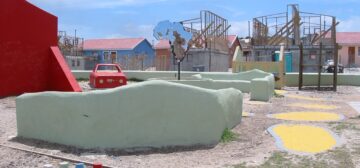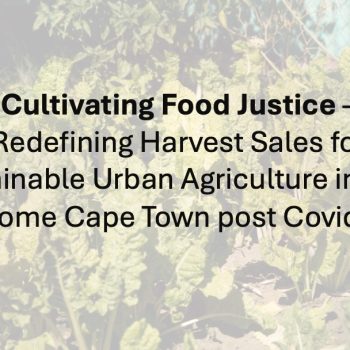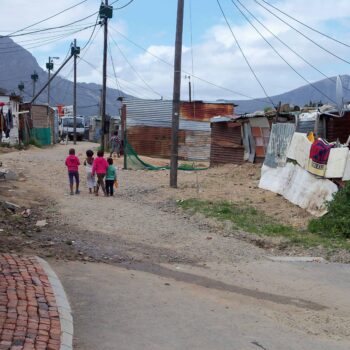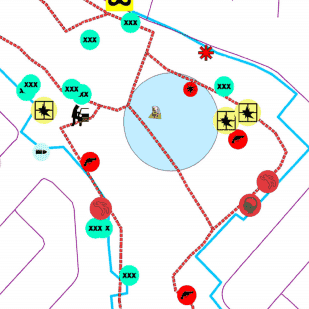About the Urban Violence, Safety and Governance CityLab
The project aims to do a systematic analysis of the impact of informal settlement upgrading on the quality of life of informal settlement dwellers post-upgrading with a specific focus on how the nature and extent of violence and violent crime have changed and whether or not there has been an improvement in safety in the settlement. A specific focus of the project is to study the Violence Prevention through Urban Upgrading (VPUU) programme as one methodology for violence reduction and the improvement of safety through investment in public infrastructure and other social and economic interventions.
The project is based at the African Centre for Cities, and is supported by the Inclusive Violence and Crime Prevention (VCP) programme which is implemented by Deutsche Gesellschaft für Internationale Zusammenarbeit (GIZ) GmbH. More information can be found on the Safer Spaces organisation platform.
Situating the CityLab in Cape Town neighbourhoods
This project has three components which are closely connected and feed into one another:
1. The first is academic research, which involves an in-depth comparison of three different upgrading projects in order to assess how the VPUU methodology compares to other upgrading approaches. Preventing violence and improving safety of residents are the lenses through which data is assessed. The three sites for these upgrading projects are in Mitchell’s Plain, Philippi, and Khayelitsha.
2. The second is a CityLab seminar series, where major theories, research findings and issues around violence, community-driven upgrading, design, public space and social activation are discussed and debated. A wide range of role-players including officials from all spheres of government, academics, students and civil society groups participate.
3. The third element is a four day training workshop aimed at local government officials to enhance their knowledge concerning effective methodologies and approaches for improving safety through upgrading. The content of this training course is informed by the research findings, as well as deliberations and key discussion points from the CityLab seminars. Field visits to VPUU sites will also be used to provide insights into the VPUU methodology and lessons.
Before commencing research in a particular settlement, care is taken to consult with the community leadership and other members of the community. We present the project and ensure community authorisation of the research being undertaken before entering the settlement. We also connect with community-based organisations in order to get their support for the research.
Contributions to community stakeholders
Thus far the research has been completed in two of the three settlements and fieldwork is about to be completed in the third. In all research sites, in-depth interviews and focus group discussions as well as a crime mapping workshop were conducted with residents. During the crime mapping workshop, residents pinpointed crime and violence hotspots in the settlement before and after the upgrading intervention. Interviews were also conducted with a social worker and a community development worker to acquire other perspectives of the challenges that the community faces since the upgrading of the settlement in terms of violence and crime.
Five CityLab seminars were held over the course of the year 2014, covering topics such as the role of social cohesion in violence reduction; what integrated participatory upgrading entails; how to mainstream safety in informal settlement upgrading projects; as well as the role of early childhood development and youth development in understanding and breaking the cycle of violence and crime. The series was concluded in April 2015 with a seminar entitled, “Options for reducing violence in South African Cities,” jointly organised with the International Development Research Centre (IDRC).
The research findings and CityLab discussions are providing interesting insights into the multifaceted nature of violence and crime and the complexity of informal settlements. The research has also revealed how the nature, perception, and concerns over violence, crime, and safety differ from one settlement to the next.
A short course for municipal officials and other practitioners entitled, “Mainstreaming Urban Safety and Inclusion in South Africa,” was held on 13-16 April 2015.
